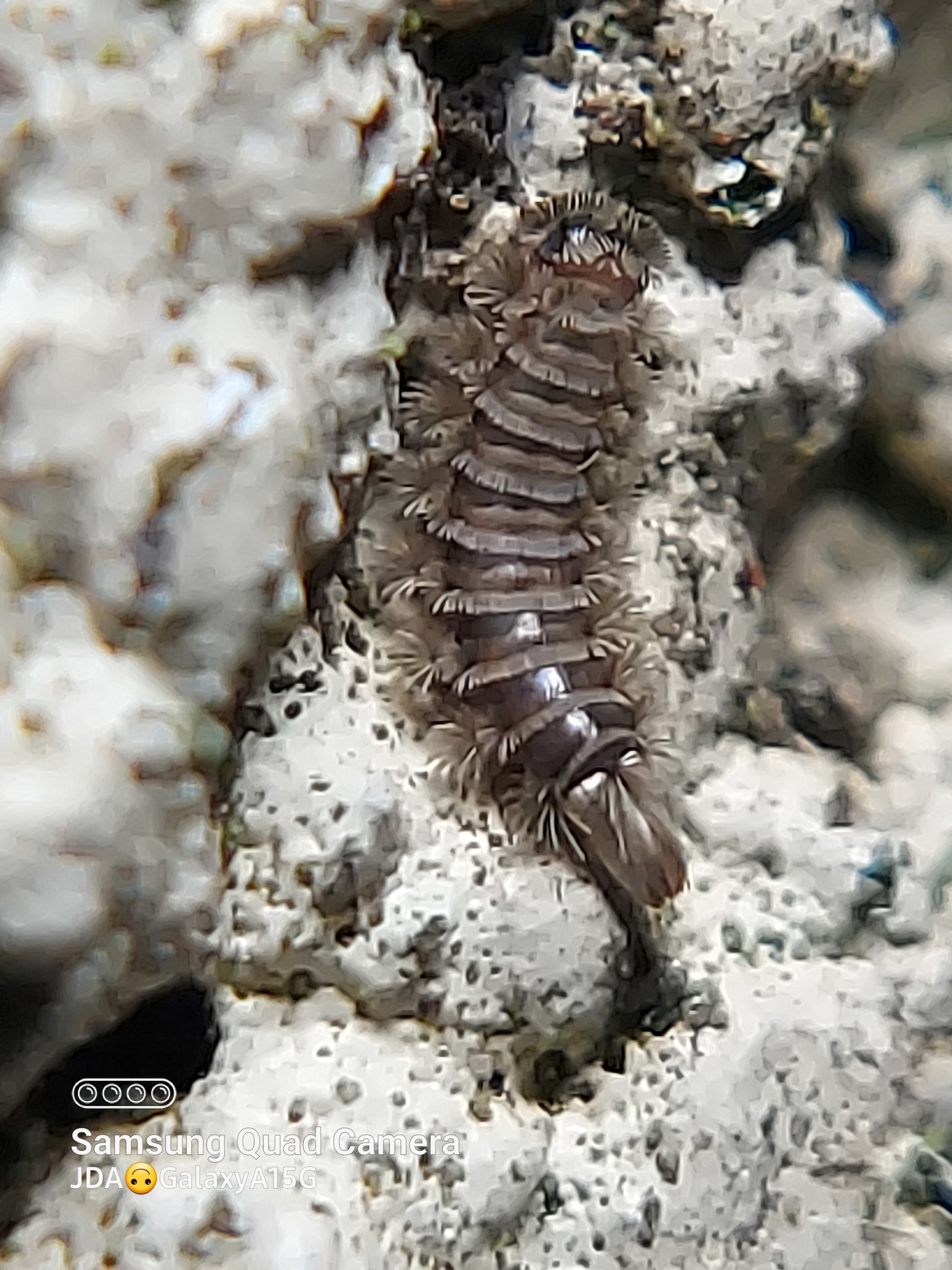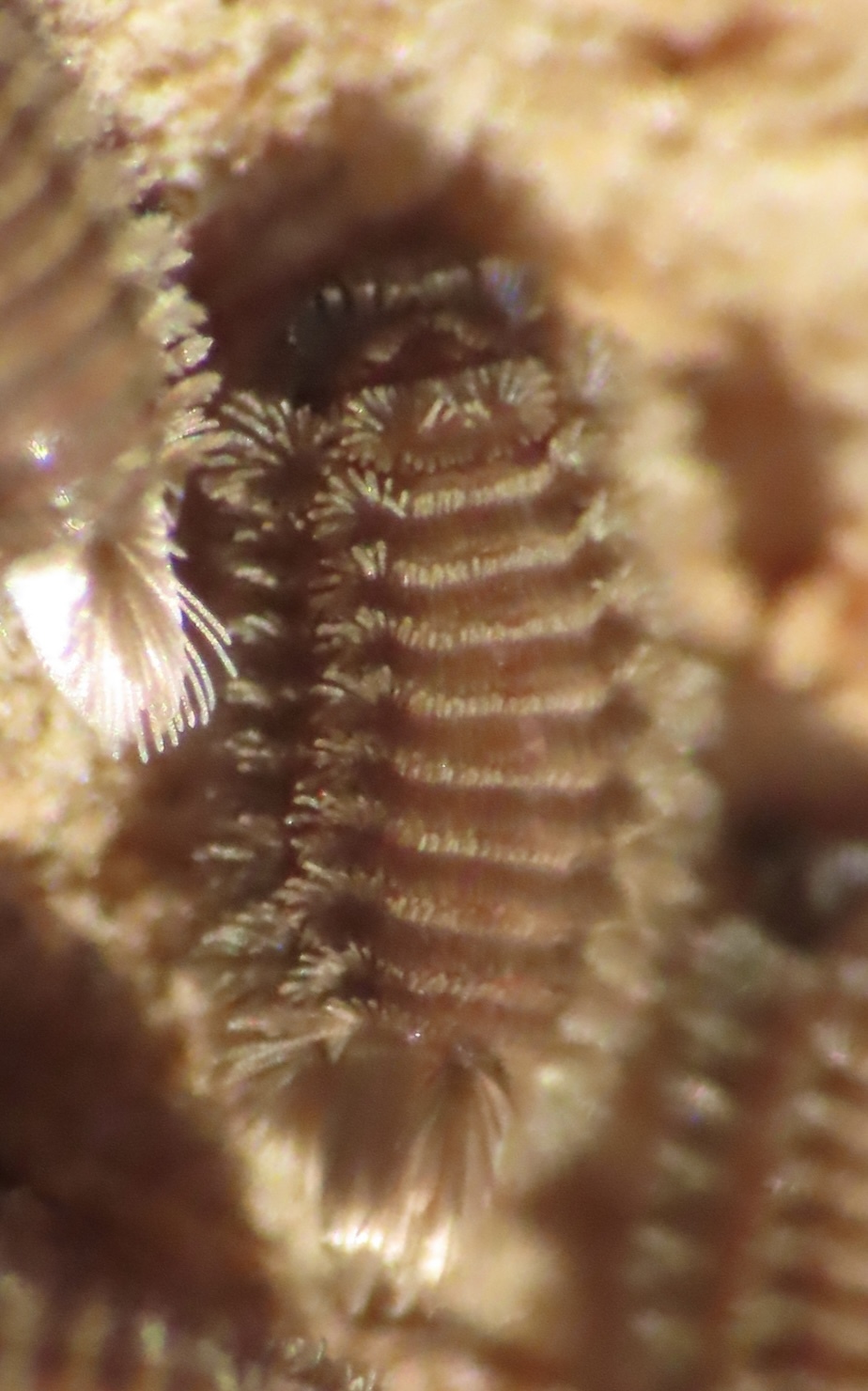Map Snapshot





7 Records
Description
The two species expected in Maryland can be separated based on details of antennal sensilla (J. W. Shultz, pers. comm.).
Seasonality Snapshot
Use of media featured on Maryland Biodiversity Project is only permitted with express permission of the photographer.
A Polyxenus species in Garrett Co., Maryland (7/27/2023). Verified by Dr. Jeffrey W. Shultz, University of Maryland.
View Record Details
Media by
Dave Webb.
Polyxenus species in Montgomery Co., Maryland (3/17/2022). (c) smiley beaver, some rights reserved (CC BY-NC).
View Record Details
Media by
smiley_beaver via iNaturalist.
Polyxenus species in Montgomery Co., Maryland (11/28/2021). (c) Peter Edelman, some rights reserved (CC BY-NC).
View Record Details
Media by
peroed via iNaturalist.
Polyxenus species in Montgomery Co., Maryland (8/17/2024). (c) Peter Edelman, some rights reserved (CC BY-NC).
View Record Details
Media by
peroed via iNaturalist.
Polyxenus species in Howard Co., Maryland (5/28/2023). (c) bugologist2, some rights reserved (CC BY-NC).
View Record Details
Media by
bugologist2 via iNaturalist.
Polyxenus species in Montgomery Co., Maryland (8/17/2024). (c) Peter Edelman, some rights reserved (CC BY-NC).
View Record Details
Media by
peroed via iNaturalist.
Source: Wikipedia
In Greek mythology, Polyxenus or Polyxeinus /pəˈlɪksɪnəs/ (Ancient Greek: Πολύξενος, Poluxenos, or Πολύξεινος, Poluxeinos) is a name that may refer to:
- Polyxenus, one of the first priests of Demeter and one of the first to learn the secrets of the Eleusinian Mysteries.[1]
- Polyxenus, son of Agasthenes and Peloris, king of Elis. He was counted among the suitors of Helen,[2] and accordingly participated in the Trojan War, having brought 40 ships with him.[3] He returned home safely after the war, and had a son Amphimachus, whom he possibly named after his friend Amphimachus (son of Cteatus), who had died at Troy.[4]
- Polyxenus, king of Elis, was said to have been entrusted with the stolen cattle by the Taphians under Pterelaus; the cattle was ransomed from him by Amphitryon.[5] This Polyxenus, however, appears to be a figure distinct from Polyxenus, son of Agasthenes, since he lived two generations before the Trojan War.
- Polyxenus, also called Medus, son of the hero Jason and the Colchian sorceress Medea,[6] the daughter of King Aeëtes. He was the brother of Eriopis.[7]
Notes
[edit]- ^ Homeric Hymn 2 to Demeter 477
- ^ Apollodorus, 3.10.8; Hyginus, Fabulae 81
- ^ Homer, Iliad 2.624; Dictys Cretensis, 1.17 & 3.5; Hyginus, Fabulae 97; Dares Phrygius, 14
- ^ Pausanias, 5.3.4
- ^ Apollodorus, 2.4.6
- ^ Pausanias, 2.3.8 with a reference to Hellanicus
- ^ Pausanias, 2.3.9
References
[edit]- Apollodorus, The Library with an English Translation by Sir James George Frazer, F.B.A., F.R.S. in 2 Volumes, Cambridge, MA, Harvard University Press; London, William Heinemann Ltd. 1921. ISBN 0-674-99135-4. Online version at the Perseus Digital Library. Greek text available from the same website.
- Dares Phrygius, from The Trojan War. The Chronicles of Dictys of Crete and Dares the Phrygian translated by Richard McIlwaine Frazer, Jr. (1931-). Indiana University Press. 1966. Online version at theoi.com
- Dictys Cretensis, from The Trojan War. The Chronicles of Dictys of Crete and Dares the Phrygian translated by Richard McIlwaine Frazer, Jr. (1931-). Indiana University Press. 1966. Online version at the Topos Text Project.
- Gaius Julius Hyginus, Fabulae from The Myths of Hyginus translated and edited by Mary Grant. University of Kansas Publications in Humanistic Studies. Online version at the Topos Text Project.
- Homer, The Iliad with an English Translation by A.T. Murray, Ph.D. in two volumes. Cambridge, MA., Harvard University Press; London, William Heinemann, Ltd. 1924. ISBN 978-0674995796. Online version at the Perseus Digital Library.
- Homer, Homeri Opera in five volumes. Oxford, Oxford University Press. 1920. ISBN 978-0198145318. Greek text available at the Perseus Digital Library.
- The Homeric Hymns and Homerica with an English Translation by Hugh G. Evelyn-White. Homeric Hymns. Cambridge, MA.,Harvard University Press; London, William Heinemann Ltd. 1914. Online version at the Perseus Digital Library. Greek text available from the same website.
- Pausanias, Description of Greece with an English Translation by W.H.S. Jones, Litt.D., and H.A. Ormerod, M.A., in 4 Volumes. Cambridge, MA, Harvard University Press; London, William Heinemann Ltd. 1918. ISBN 0-674-99328-4. Online version at the Perseus Digital Library
- Pausanias, Graeciae Descriptio. 3 vols. Leipzig, Teubner. 1903. Greek text available at the Perseus Digital Library.





